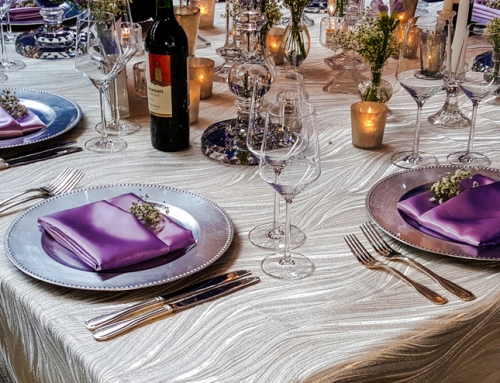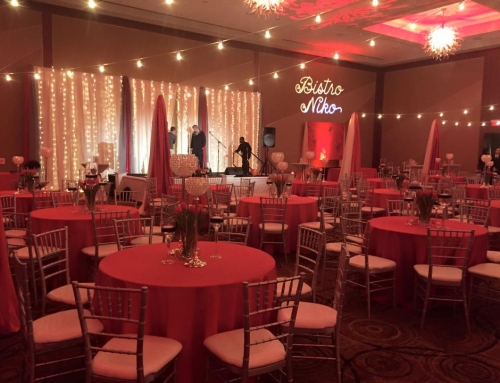Your Wedding Planning Checklist
Planning a wedding is a complicated process. You will have myriad decisions to make and an infinite number of details to arrange. After officially becoming engaged and confirming the wedding date, begin the planning process to avoid last-minute frustrations and even disasters. Discover here how to handle some of these traditional, “first-things-first” details by using a wedding planning checklist.
- Clergy.
Before you publicly announce a specific wedding date, reserve the church or other location for the date and time you will be married, and make all the necessary arrangements with the clergy or other official who will perform the ceremony. - Reception venue.
Also before announcing your wedding date, confirm the availability of your reception venue. You must make reservations for some popular reception locations as much as a year in advance. - Bridesmaids, groomsmen and attire.
Select the bridesmaids and groomsmen. Then, select the bride’s wedding dress and the dresses the bridesmaids will wear, as well as arrange to rent tuxedos for the groom and groomsmen. Once you make these decisions, you will find that planning the other details may simply fall into place. Traditionally, bridesmaids pay for their own dresses. - Gift registration.
You will have fun with this step, and you will find it will yield positive, practical results. To begin your planning details on an upbeat note, register for the gifts you really need or want as you begin life in your new home. Contact department, jewelry and specialty stores and register your choices in silver, china, crystal and more. Gift registering makes gift buying much easier and more convenient for your friends and guests. Be sure everyone knows where you are registered. - Guest list.
Begin compiling your guest list. Be sure to obtain a guest list from the groom’s mother. She will depend on you to suggest the size of her list. It is helpful to keep your list on file cards in alphabetical order. Mark each card according to whether you will invite the guest to the wedding and reception ® or the ceremony only ©. Mark those you prefer to receive a wedding announcement only, and no invitation to either event, with an (A). Mail these announcements out the day after the ceremony. - Wedding rentals.
Contact your wedding rental professional six months before the wedding date, if you can, to discover how your rental store can assist you throughout the wedding and reception planning process. Many rental centers offer complete planning services, which can make your other tasks go much smoother. The wedding rental store may act as a one-stop shop for many of your needs for wedding-related parties and showers, the rehearsal dinner, the wedding ceremony, the reception and even the wedding invitations. Arrange a meeting to discuss ideas for your wedding and reception. You might choose from dozens of colors and styles in table linens, candelabra, centerpieces, china, glassware, flatware and serving pieces. Some brides even choose tents, canopies, tables, chairs, lighting, bars and dance floors. At this meeting, provide a good estimate of the number of guests who will attend the wedding. Generally, you can expect about 75 percent of the number of people invited. Two weeks before the reception, provide a final guest count to your rental professional. - Invitations/announcements.
Order your wedding invitations, announcements and other stationery about three months in advance of the wedding. At that time, you may find it convenient to select thank-you notes, as well. Address both inner and outer envelopes by hand. Mail your invitations about a month before the wedding date. - Caterers/photographers/florists/musicians.
Select your caterer, photographer, florist and musicians at least three months in advance of the wedding. At that time, supply your caterer an estimated number of guests from the list you have compiled. In general, count on about 75 percent of the number of people you plan to invite. You will give your caterer the final number of reception guests you expect about two weeks before the wedding. Since your wedding is an once-in-a-lifetime event, choose a professional wedding photographer. If you are planning to have music at your wedding and/or reception, also finalize these plans at least three months in advance. - Displaying gifts.
Brides generally display wedding gifts in their homes beginning six weeks to a month before the ceremony. You can group china items together with silver, and show crystal and linen items in separate groupings to create an artistic display. Contact your rental store for 6-foot or 8-foot banquet tables to display these gifts. Add rental table risers to create an elegant display. Remember, it is improper to display duplicate gifts or to attach name cards to the gifts. - Transportation/accommodations.
The bride’s family is responsible for arranging the wedding party’s transportation to and from the church, and for arranging accommodations for bridesmaids and out-of-town guests. Out-of-town guests generally pay for their own accommodations. Guests should provide their own transportation to and from the church and the reception. If desired and possible, it is traditional for the bride to pay for bridesmaids’ hotel rooms. - Rehearsal dinner.
The wedding rehearsal usually occurs the afternoon or evening on the day before the wedding. It is customary for the groom’s parents to host and pay for the rehearsal dinner for the entire bridal party. - Reception.
Let your wedding rental professional help set up your rented reception decorations, furnishings and equipment.
All in all, a wedding planning checklist can help sort through the sometimes hurried and complicated tasks associated with any wedding. For help with chair cover rentals and linen rentals for your wedding, be sure to contact Cover Ups Chair Covers & Linens so that we can help you further!





